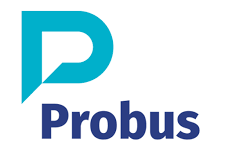In the fast-paced corporate system, retaining top talent has become a strategic priority and a formidable challenge. Gone are the days when perks like ping-pong tables or free snacks were enough to keep employees engaged. Instead, the modern workforce craves purpose, growth, and meaningful connection. Data Analytics has proved to be the silent revolution reshaping human resources.
By transforming raw numbers into actionable insights, companies are uncovering the hidden drivers of retention, predicting turnover before it happens, and building workplaces where employees truly thrive. At the crossroads of technology and empathy, data-driven talent management is not just a trend – it’s the future of HR.
The Cost of Employee Turnover
According to a 2024 report by Work Institute, employee turnover costs businesses nearly 33% of a worker’s annual salary. This startling figure underscores the importance of retention strategies. Yet, traditional approaches to talent management often fail to address the nuances of modern workplaces, where remote work, diverse teams, and evolving employee expectations play a pivotal role.
How Analytics Revolutionizes Talent Management
Analytics bridges this gap, offering a comprehensive view of employee behavior, satisfaction, and performance. Here’s how data-driven strategies are transforming retention:
Predicting Attrition: Predictive analytics can identify employees who might leave by analyzing patterns such as declining engagement, reduced performance, or shifts in work habits. A study by Deloitte highlights that organizations using predictive analytics reduce turnover by 30%, saving millions annually.
Personalized Career Pathways: Employees value growth. Using data, HR teams can map out tailored career paths, ensuring employees see a future within the organization. LinkedIn’s 2024 Workforce Learning Report found that organizations with a strong learning culture maintained a steady retention rate of 57% as compared to organizations with baseline and moderate learning cultures.
Enhancing Employee Engagement: Data reveals what drives employee satisfaction. Regular pulse surveys analyzed through sentiment analysis tools help gauge morale, providing actionable insights to enhance workplace culture. Gallup reports that companies with high employee engagement have 78% lower absenteeism and 51% less turnover.
Optimizing Benefits and Rewards: Analytics can pinpoint which benefits resonate most with employees. For instance, a 2024 Glassdoor survey noted that flexible work options and mental health support are now among the top three priorities for employees. Companies aligning their benefits to these insights see a significant rise in employee retention.
Predictive Analytics: The Ethical Imperative in Talent Management
While the adoption of predictive analytics in HR is important, it isn’t just about technological advancement – it’s about fostering trust and transparency in the workplace. Although predictive insights help streamline HR operations, misuse or lack of transparency can erode employee confidence.
A recent study revealed that most employees are wary of their employers’ ability to responsibly manage their data. This underscores the need for HR teams to define ethical boundaries, including transparency about what data is collected, how it is used, and who has access. Employees must feel their privacy is respected and safeguarded.
One significant challenge lies in preventing algorithmic bias. Historical inequities in data, such as gender or racial disparities, can skew predictions, perpetuating unfair outcomes. Regular audits, diverse data sets, and oversight committees are essential to ensure fairness and inclusivity in analytics-driven decisions.
Moreover, predictive analytics should empower employees, not just predict outcomes. Insights can guide personalized career development plans, giving employees a sense of autonomy and collaboration in shaping their growth paths. Voluntary participation in data collection and sharing aggregated insights can further build trust.
To truly integrate predictive analytics as a force for good, HR teams must lead with empathy and purpose. Ethical charters, transparent practices, and fair algorithms ensure data-driven strategies align with organizational values and employee rights.
When applied thoughtfully, predictive analytics can do more than improve retention – it can build a foundation of mutual respect, inclusivity, and trust, transforming workplaces into environments where employees feel valued and empowered. By championing ethical innovation, HR professionals position their organizations for sustainable growth and talent success.
The Future of HR Lies in Data
As organizations continue to embrace digital transformation, the role of analytics in HR will only grow. From AI-driven recruitment platforms to real-time engagement dashboards, the tools available today empower HR professionals to not just react but proactively shape the workforce of tomorrow.
Investing in data-driven talent management is not just about retaining employees – it’s about building a resilient and thriving organization. Every data point is an opportunity to improve, every insight a step closer to the ultimate goal: a workplace where every employee feels valued, empowered, and ready to contribute their best. By embracing analytics, companies can transform challenges into opportunities, ensuring that their most valuable resource – their people – remain engaged and committed.
 Newspatrolling.com News cum Content Syndication Portal Online
Newspatrolling.com News cum Content Syndication Portal Online







